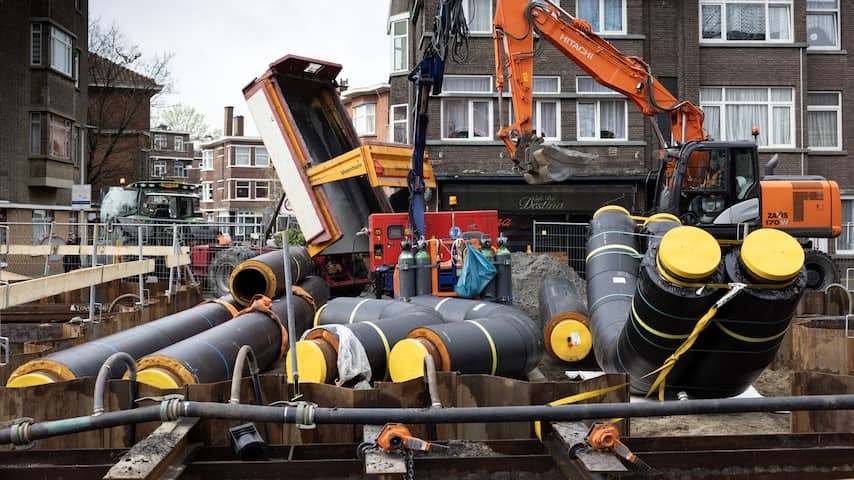
The Dutch House of Representatives has approved a long-awaited law that ensures district heating networks come into public hands. This should revive the construction of district heating in the coming years, after many heating companies had stopped building.
The Collective Heat Act was delayed for years and revised by several cabinets. In 2022, then Climate Minister Rob Jetten decided that the heat infrastructure should be at least 51 percent publicly owned.
Our electricity and gas networks are already managed by companies that are publicly owned, but district heating networks are usually owned by private companies such as Eneco or Vattenfall. Locally, they form monopolies. Municipalities wanted more control over this infrastructure.
Several municipalities are already working on establishing public heating companies. State-owned company EBN will co-invest in district heating networks to ensure that more houses can be disconnected from gas.
Construction is almost at a standstill everywhere
Existing district heating networks may remain in the hands of the current owners for a maximum of thirty years, so that they can recoup their investment. After that, they must be compulsorily taken over by a public heating company. Municipalities may also designate a private company to construct or expand a district heating network for the next ten years.
Currently, the construction of district heating networks has virtually stopped everywhere in the country. Companies such as Eneco said that the bill created too much uncertainty. In addition, the construction costs of district heating networks have increased, and companies find it difficult to make money with them.
In 2019, it was agreed in the climate agreement that half a million existing homes would be connected to a district heating network by 2030. But that goal will not be achieved by a long shot. Due to squabbling between government and the business community and concerns about affordability for residents, that number will be closer to 200,000 according to outgoing Climate Minister Sophie Hermans.
No link with gas price
The new law should also ensure that district heating networks are more affordable for households. Currently, they pay a price for heat that is linked to the gas price, even if their heat does not come from gas at all. During the energy crisis, this caused significant price peaks.
Under the new law, the costs for consumers will be based on the actual costs incurred by heating companies. There will also be a tariff limit that ensures that some district heating networks do not become much more expensive than others. Supervisor ACM must monitor that companies charge fair rates. It will take a number of years before this new tariff system comes into effect.
The final law received a large majority in the House of Representatives. The PVV did vote against it. If the Senate deals with the law quickly enough, it can come into effect on January 1, 2026.